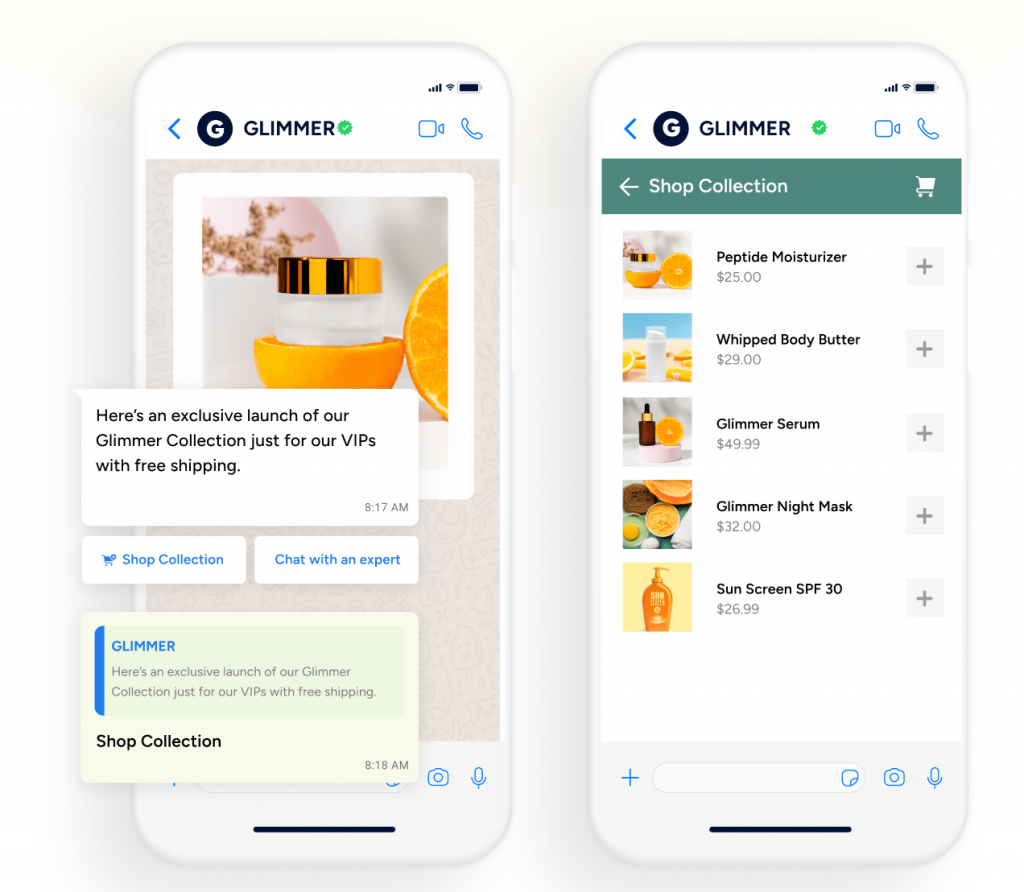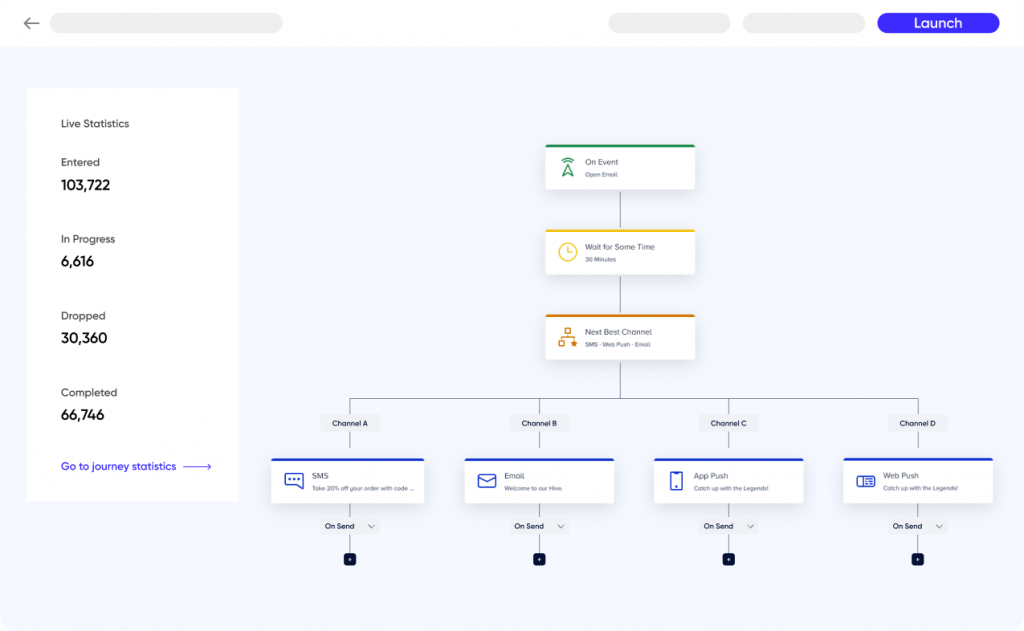Conversational commerce platforms: What they are, why they matter, and how to choose the right one for your business
 Katie Morley
Katie Morley
May 10, 2024
 Katie Morley
Katie Morley
May 10, 2024
 Katie Morley
Katie Morley
May 10, 2024
 Katie Morley
Katie Morley
May 10, 2024
Not all that long ago, it was hard to imagine making a purchase without talking to someone. Whether it was the sales associate at a store or the operator of a phone line, you simply couldn’t buy without a conversation.
Then ecommerce changed the game, allowing customers to do everything from discovering products to checking out without ever talking to another soul. And while that approach had its benefits—especially for ease and efficiency—it can also feel impersonal.
Today, customers can navigate the entire customer journey alone. Yet they still crave a sense of connection with the brands they’re buying from. An impressive 64% of consumers say they want brands to connect with them and, when they do, 57% will increase their spending.
It begs the question: How can you forge that level of connection in the age of digital interactions? That’s where a conversational commerce platform enters the chat (quite literally).
What is eCommerce site search?
The benefits and importance of good eCommerce site search
eCommerce site search software: Best practices and key features
The 3 best eCommerce site search solutions
Deliver completely personalized shopping experiences at scale with Insider
A conversational commerce platform is a software solution businesses can use to engage with customers through messaging across various channels. Interfaces like chat apps, texts, or voice assistants all fall into this category, as they all facilitate real-time interactions with customers.
That’s the gist. But to get a deeper understanding of what conversational commerce solutions are, let’s zoom out and look at conversational commerce as a whole.
Conversational commerce is a form of both online shopping and customer interaction. It sits at the intersection of those two functions and combines the friendly and personal touch of conversational messaging with the convenience of ecommerce.
From conversational commerce chatbots and voice assistants to text messages and other messaging platforms, businesses can use many methods to interact and engage with customers at all stages of the journey. Customers can converse with a real person, an AI conversational commerce solution, or a combination of both.
The easiest way to come to grips with conversational marketing and commerce is with an example. Imagine that a customer is looking for a new carry-on suitcase for an upcoming trip. That customer could:
All of those are examples of how conversational commerce platforms can balance ease and efficiency with customer engagement—improving the customer’s experience and ultimately driving more conversions.

You likely heard the ecommerce rallying cries that went something like, “Your customers want self-serve options!” or the even harsher, “Your customers don’t want to talk to you!”
And the intention behind those statements was positive—you want a customer experience that’s smooth enough for them to navigate themselves. But it also made it easy to swing so far in the opposite direction that customers were left feeling abandoned.
That’s likely a big reason why conversational commerce’s popularity is skyrocketing, seeing a 137% increase in mobile app messages in 2023 over 2022. It’s proof that businesses and retailers are catching on to the many benefits of conversational commerce platforms, including:

The benefits are compelling, so now for the inevitable next question: How do you find the best conversational AI platform for your business?
As with anything else, “best” is subjective. However, there are a few important criteria to consider when making your choice. Your conversational commerce platform should:
Ready to weed through your options? Let’s take a closer look at each of these criteria.
Think of a conversation with anyone. If you don’t know each other well and haven’t seen each other in some time, your conversation can feel awkward and stilted. But if that person is a more steady presence, your conversation feels far more natural.
The same is true with conversational commerce, which is why your platform should allow you to interact with your customers across various touchpoints.

Some platforms focus exclusively on support use cases. Others are siloed to marketing use cases. Choose a more comprehensive tool that helps you create micro-conversion opportunities across the funnel at all different stages of the customer journey.
Conversational AI for customer experience works best when it’s not only natural but also personalized. But to get personalization right, you need data.
Your conversational commerce platform should gain context, insights, and information from various events and interactions across all your channels. That comprehensive approach allows you to develop a deep understanding of your customer and deliver a truly personalized experience and conversation (as opposed to swooping in with something irrelevant like a cheesy pick-up line).

Your conversational commerce platform is an important tool in your tech stack, but it’s not the only tool in your tech stack.
Look for a platform that seamlessly integrates with the tools you’re already using, including your:
You don’t want to have to jump through hoops and develop clunky workarounds to get these crucial tools to successfully “talk” to each other.
With the right platform, there’s no need to start from scratch. Look for one that offers a variety of predefined templates and conversational flows.
That way, you can jump right in with designing effective conversations and experiences (without any coding knowledge).
Your customers aren’t all in one place, which is why your conversational commerce platform should allow you to engage them on a variety of channels.
From WhatsApp and Facebook to Instagram and iMessage, determine the channels where you want to converse with your customers so you can confirm your platform supports those.
Still looking for the best conversational AI platform? We have your answer: Insider.
With Insider’s conversational commerce platform, you can create end-to-end purchase experiences on WhatsApp as well as interactive conversational experiences on other channels. Here’s a look at some of Insider’s best conversational commerce features:
Conversational commerce sits right in the sweet spot between customer convenience and customer connection. And, with a platform like Insider, you can engage your customers—without sacrificing the ease and efficiency they’re looking for.
Conversational commerce platforms provide personalized, real-time assistance and recommendations through familiar messaging channels. They streamline the shopping process by allowing customers to discover products, ask questions, and complete purchases seamlessly within a chat interface.
Conversational AI allows businesses to provide personalized, real-time customer interactions that improve the overall shopping experience. It efficiently handles customer inquiries, recommends products based on preferences, and assists with transactions.
Businesses are using AI-powered chatbots for more natural and context-aware interactions and integration with voice assistants for hands-free shopping. There is also a growing focus on using conversational data to deliver hyper-personalized experiences.

Written by
Katie Morley
Katie is an award-winning content marketer with over eight years of experience in content strategy, development, and copywriting. As Global Content Director at Insider, she currently oversees content strategy across 26 regions. Fun fact: Katie read 64 books last year (for which she owes a long commute and two week-long holidays where she spent approximately six hours a day with her nose in a book).